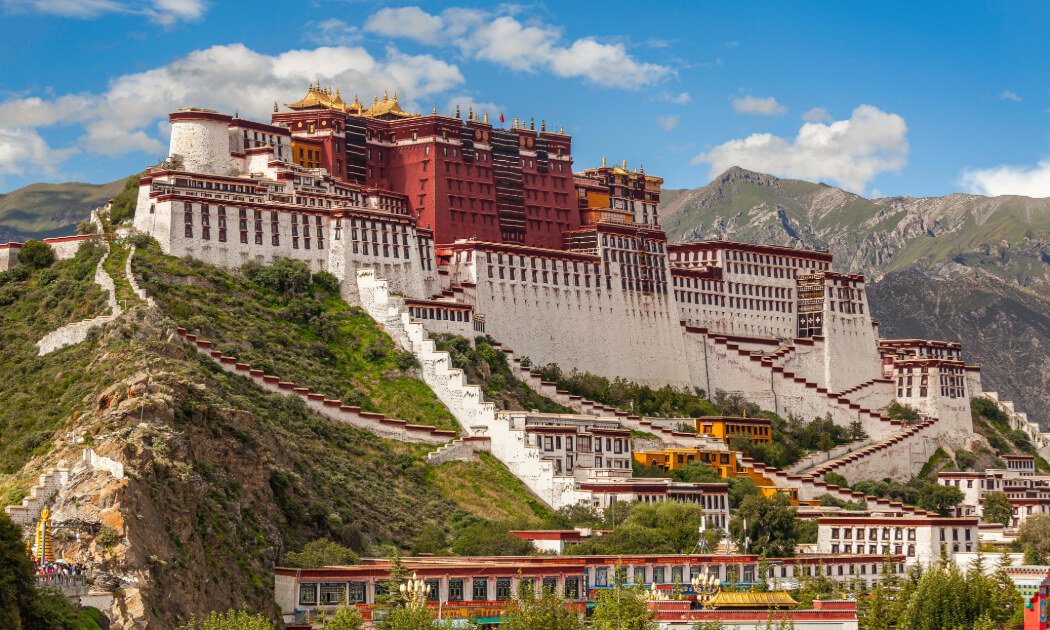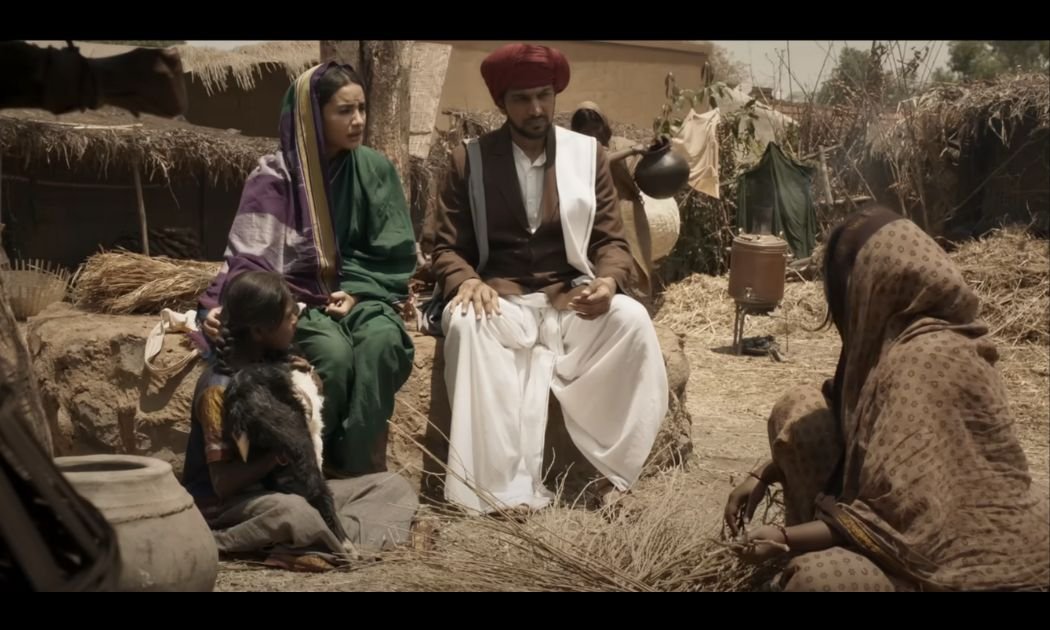
Do Assam’s People Need Guns—Or Just Better Governance?
The Assam government’s decision to issue arms licences to “indigenous” residents in remote areas, under the pretext of protection from “illegal immigrants,” marks a retreat from the state’s core responsibility to ensure public security. It also legitimises exclusion and replaces public trust and institutional justice with a politics rooted in fear.

China’s War on Tibetan Identity Begins with Children, Report Finds
China is operating a vast network of “colonial” boarding schools across Tibet that forcibly removes children—including those as young as four—from their families, a new report released Wednesday claims. The report, published by the U.S.-based Tibet Action Institute, says the system is designed not for education access but for political assimilation, cutting children off from their language, culture and religion.

Can Manipur Govt Be Restored When Legislators Still Can’t Cross ‘Borders’?
Ten legislators from the National Democratic Alliance (NDA) have reportedly demanded the restoration of a “popular government” in Manipur, citing the support of 44 MLAs and calling for an end to President’s Rule. Their demand comes even as the ground realities in the state—gripped by prolonged ethnic violence since May 3, 2023—remain unchanged. The central constitutional question is whether an elected government can be restored when one section of legislators remains physically and functionally excluded from the legislative process.

New FCRA Rule Brings Censorship to NGO Publications
The central government now requires NGOs that receive foreign funding and engage in any form of publication to declare that they do not circulate “news content” — and to obtain a certificate from the Registrar of Newspapers for India (RNI) confirming this. This could amount to the use of financial regulation to curb the speech and advocacy roles of civil society groups.

Court Clears Ex-Wrestling Chief in POCSO Case
A court in Delhi has cleared Brij Bhushan Sharan Singh, former president of India’s wrestling federation, in a case filed under the Protection of Children from Sexual Offences (POCSO) Act. The case was lodged by a minor female wrestler in 2023. The development comes at a time when the conviction rate under the child protection law stands at just 3%, according to official data.

Why Do So Many Indians Fall for Fake News?
A global study has tried to answer this question by looking closely at how people across four countries—India, France, the U.K. and the U.S.—react to news, especially in the age of social media, looking at people’s emotional reactions, thinking patterns and how their background affects the way they process information. What the study found about India is worrying—but it’s reassuring that it also points to clear solutions.

JN.1 COVID Variant Spreads in India, but No Need to Panic
A new COVID-19 variant, JN.1, has been detected in several parts of India and abroad, with rising cases and at least one death reported in Maharashtra. Here's what is known so far about the strain, its symptoms and how to stay protected.

What Authorities Reveal by Silencing Speech
As citizens debate freedom of speech—amid serious charges over social media posts and alleged selective blocking of news websites—it’s worth examining censorship through the lens of political science rather than ideology, which often reduces complex issues to partisan battles and obscures deeper understanding.

Research Shows the World is Kinder Than We Think
Many people today feel pessimistic about life and the world around them, largely because the news tends to focus on conflict, crisis and division. But a new research suggests this gloomy outlook may be misleading. The world appears to be far kinder—and more interconnected—than we often assume. Generosity, empathy and trust are widespread across societies, including in India.

Bullets or Dialogue? The Tough Choices in Tackling Insurgency
As security forces wage an all-out war against Maoist rebels in Chhattisgarh, citizens remain divided over how governments should handle insurgencies—whether to respond decisively with military force or first sit down for talks. The answer isn’t as straightforward as we’d like, because rebellions and insurgencies are almost always messy, complex affairs. But let’s unpack this clearly.

Cancer-Linked Chemicals Found in Soaps, Lotions and Shampoos
A new study has found that many personal care products used daily by women—like body lotions, shampoos, soaps and cosmetics—contain chemicals that release formaldehyde, a substance known to cause cancer. These chemicals are especially common in products used by African-American and Latina women in the United States, but some of these brands are sold widely, including in India.

States Asked to Identify ‘Illegal’ Immigrants, Without Deportation Mechanism
The Ministry of Home Affairs (MHA) has reportedly issued a new directive to states and Union Territories, setting a 30-day deadline to verify the citizenship status of “suspected” undocumented immigrants from Bangladesh and Myanmar. This move is likely to create bureaucratic bottlenecks and trigger long-term humanitarian and geopolitical complications with no resolution mechanism in sight.

Did Ashoka University Prof. Violate the Law—or Just Offend Some Sentiments?
The arrest of Ashoka University professor Ali Khan Mahmudabad points to a troubling truth about how law enforcement operates in an increasingly polarised public sphere: in a politically charged atmosphere, the threshold for prosecuting an ordinary citizen—academic or not—can be alarmingly low. All it takes is one complaint, one misreading, or one wilful distortion of a public remark. The system, instead of examining the context or the merit of what is said, responds as if the outrage itself is evidence of wrongdoing.

Is the Arrest of Gujarat’s Media Owner Part of a Pattern?
The recent detention of Bahubali Shah, co-owner of Gujarat Samachar, by the Enforcement Directorate (ED) has led to accusations of political vendetta. Opposition leaders, including Rahul Gandhi, have condemned the move as part of a pattern of intimidation against media critical of the government.

‘No One Came’: Over 45 Manipur Villages Burned Say They Got ‘Zero’ Help
Two years after their homes were torched and their lives uprooted, residents of 45 Kuki-Zo villages from Manipur’s Chandel district are still waiting for government recognition, let alone compensation or relief. Not one official relief camp has been set up for them, no state support has reached them in their name, and the government continues to deny that their villages were even affected in the May 2023 violence.

Targeted Attacks on Christians Rising in Odisha, Say Fact-Finding Teams
Three independent fact-finding missions conducted in Odisha between March and April 2025 have pointed to an alarming rise in targeted attacks, coercion and violations of constitutional rights against Christians—especially Adivasi and Dalit communities.

India’s Alleged Secret ‘Rendition’ of Rohingya Refugees
Indian authorities have allegedly “abandoned”—rather than deported—40 Rohingya refugees in international waters near the Myanmar maritime border, forcing women, children and the elderly to swim to safety using life jackets. The action could be seen as a “secret rendition,” a term used to describe the covert transfer of individuals across borders without legal process.

What Would Tagore Say About Today’s India-Pakistan War Rhetoric?
As India and Pakistan exchanged fire recently, Indian media turned the conflict into a nationalist spectacle—fuelling misinformation, stirring up communal identity and drowning out voices of reason. In moments like these, warnings by poet-philosopher Rabindranath Tagore—who wrote India’s national anthem—about nationalism read less like history and more like a diagnosis.

Phule’s Fight Against Caste Still Resonates as Film Brings His Legacy to Screen
A new biopic on 19th-century social reformer Jyotirao Phule and his wife Savitribai Phule, titled “Phule,” is now running in Indian theatres, drawing attention to enduring divides over caste, education and equality nearly 150 years after his death.

The Trolling of Foreign Secretary Vikram Misri Shows What Hate Does
Hate distorts what we expect from our governments. It teaches us to demand emotion over reason, revenge over restraint and spectacle over seriousness. It normalises irrationality. And when governments allow or tacitly support this hate to spread unchecked, it doesn’t remain focused on the supposed enemy—it turns inward, undermining public servants, weakening institutions, and sabotaging the very public interest it claims to defend. The online targeting of Foreign Secretary Vikram Misri is a clear example.
